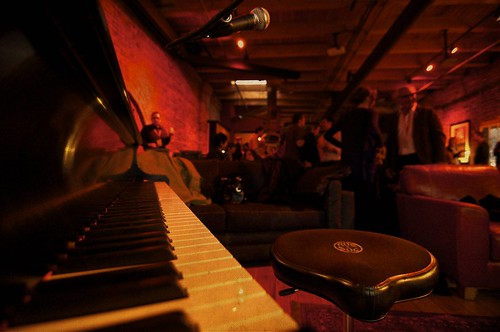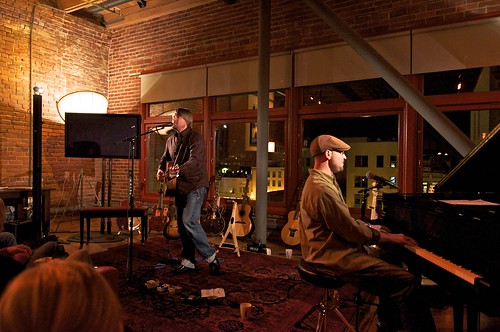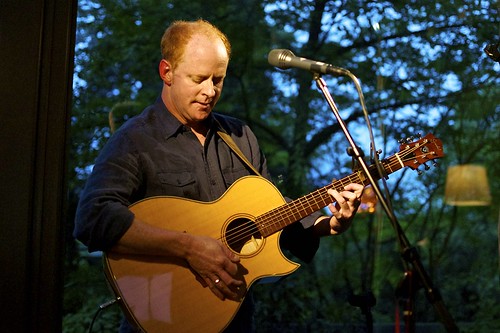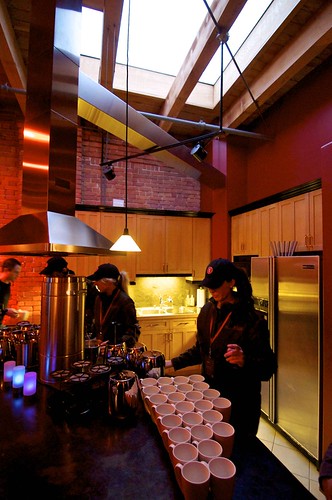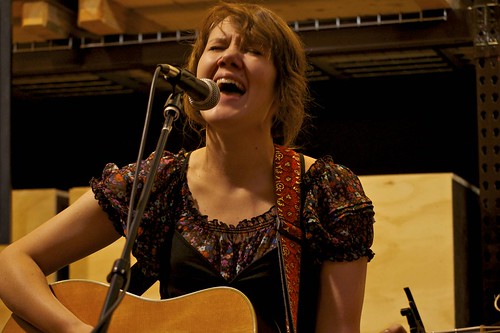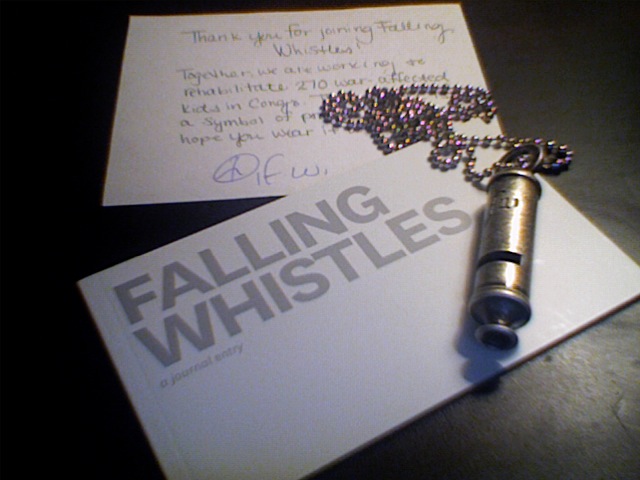Where Have I Been? The Story of a Freedom Tour
Hello, friends. I've been more quiet than usual in this space of late, and I'd like to share with you why that is.
But first I want to tell you how meaningful it was to read your stories on our last post about how each of you came to care about the subject of nonviolence.
You shared stories that were so varied and thoughtful, as I expected they would be.
And yet each story spoke of how strong and brave you are.
There was such vulnerability there.
Thank you for sharing your stories with us.
.
And now for more of the scoop on where I've been.
Have I told you what I do?
I am a concert producer for Storyville Live.
Storyville Live is a division of the Seattle-based coffee roaster Storyville Coffee Company that was designed to do something really unique and beautiful.
We produce private concerts all over the country in the incomparable setting of private homes, all with an aim to help end modern-day slavery in our lifetime.
And this coming Tuesday, June 1st, is the official launch of our nation-wide Freedom Tour.
.
[Storyville Coffee Company's roasting studio in Seattle, affectionately known as the Temple of the Bean. Image by Brad Ruggles]
.
You might wonder, "How did the idea of marrying music and coffee in a home setting come about, all for the sake of freedom?"
That's a great question.
And the answer holds a really great story.
Want to hear it?
.
[Beautiful vintage guitar collection in a Seattle loft, location of a Storyville Live private concert in May 2010. Image by Brad Ruggles.]
.
Early last year, the leadership of Storyville Coffee Company met with Gary Haugen.
Gary Haugen is the founder of International Justice Mission, a human rights agency based in Washington DC that has been rescuing children, women, and men from slavery and other forms of violent oppression for nearly 15 years.
Under Gary's leadership, IJM operates in 17 countries around the world.
- They rescue young girls -- some as young as 5 years old -- from the evils of forced prostitution.
- They free families from the tyranny of bonded labor in brick kilns, rock quarries, salt mines, and rice mills.
- They protect widows from the victimization of illegal land seizure.
And then they help those they rescue find healing, restoration, and dignity.
.
[A view of the ivory keys in a Seattle loft at a Storyville Live private concert in May 2010. Image by Brad Ruggles.]
.
Did you know slavery still exists today?
That an estimated 27 million people are literally owned by another human being on this planet?
That at least 2 million of those individuals are children?
And that this number far exceeds the number of people who were ever enslaved in over 400 years of the Trans-Atlantic slave trade?
.
It's true.
And the worst part is, these individuals will be perpetually tyrannized and brutally detained by force every single day of their lives.
That is, unless someone shows up to rescue them.
Because the truth is this:
Slavery is illegal around the world.
But enforcement against it is rare in so many places.
.
[Jonathan Kingham and Ryan Shea Smith perform a Storyville Live private concert in May 2010. Image by Brad Ruggles.]
.
That's where International Justice Mission comes in.
They employ top-notch lawyers, private investigators, and social workers -- nationals in their own home countries -- to conduct the necessary investigations.
They gather data, interviews, and video footage, and then they present this evidence to the local governmental authorities.
Sometimes it takes a bit of time to persuade the local authorities to do the right thing.
So often their systems, too, are quite corrupt.
But IJM takes those local authorities to task on enforcing the law, on choosing what is right, on changing how things are usually done.
And then they help change happen.
People are set free to go home.
And healing then begins.
.
[Legendary guitar phenom Willy Porter performs for a Storyville Live private concert in April 2010. Image by Brad Ruggles.]
.
It's dangerous work, but do you know what IJM has found?
They've found that truth and justice win when people are willing to stand up, show up, and bring accountability where it's needed.
And they've found that when one person is held accountable, others like them in that same village often flee.
The status quo becomes unprofitable, so the problem scatters.
Slavery disappears.
Freedom wins.
.
[Storyville beans, freshly roasted and blended to perfection. Image by Brad Ruggles.]
.
So, again, how did music and coffee come together for the sake of freedom?
Ah, yes.
Let me get back to that story.
.
When the leadership of Storyville Coffee Company met with Gary Haugen last year, they learned something truly remarkable.
"There are a lot of problems in the world that nobody knows how to do anything about," Gary acknowledged.
"But for us at IJM, slavery is not one of them. We know how to bring an end to slavery. We know how to put it out of business."
Did he just say that -- that they know how to bring an end to slavery?
That it's a business they know how to stop?
We couldn't help but ask, then:
"How can we help?"
Because seriously, we couldn't imagine not doing something -- anything within our power -- to help.
.
[Artful preparation and service of Storyville coffee at a Storyville Live private concert in May 2010. Image by Brad Ruggles.]
.
With Gary's charge that awareness and resources are key, we set out on a mission.
In May 2009, we produced a month-long series of private concerts in almost 20 locations around the country.
Exceptional artists like David Wilcox and Pierce Pettis offered private performances in beautiful homes for 50-100 people a night.
.
And do you know what happened?
We raised over six figures in that one month.
And with those funds, IJM opened a new field office in Ecuador.
Do you realize what this means?
People are being freed from slavery in Ecuador today . . . simply because we shared exceptional music, the perfect cup of coffee, and the story of IJM for one month last year.
Is that insane, or what?
So, how can we not help but do it again . . . and again . . . and again?
How can we not help but do it until slavery disappears forever?
.
[The incredibly talented and deeply humble Grace Pettis performs a Storyville Live private concert in May 2010. Image by Brad Ruggles.]
.
Enter the nation-wide Freedom Tour.
For the last year, we've been putting all the necessary pieces in place to take this show on the road full time.
And this time, we'll stay on the road for years.
We'll share the mission and story with thousands.
Just think of that potential impact, after what one month allowed last year.
Needless to say, we're amped to combine the best possible experience of live music with the freshest, most delectable cup of coffee on the planet so that others can come alongside and help free the world from slavery.
.
So that's the story of where I've been these days.
It's the story of hope that occupies me just now.
It's the epic opportunity we're bringing to as many people as we can.
.
If you'd like to learn how you can bring a Storyville Live private concert to 50-100 of your own friends and family in a private home setting, feel free to contact me.
I can be reached at christianne [at] journeytowardnonviolence [dot] com. Or feel free to leave a comment.
I would, of course, love to share Storyville Live with you and those you know!
[And we'll get back to our regular pace of posting here soon . . . once the tour is officially on the road and life slows a bit more for me.]



